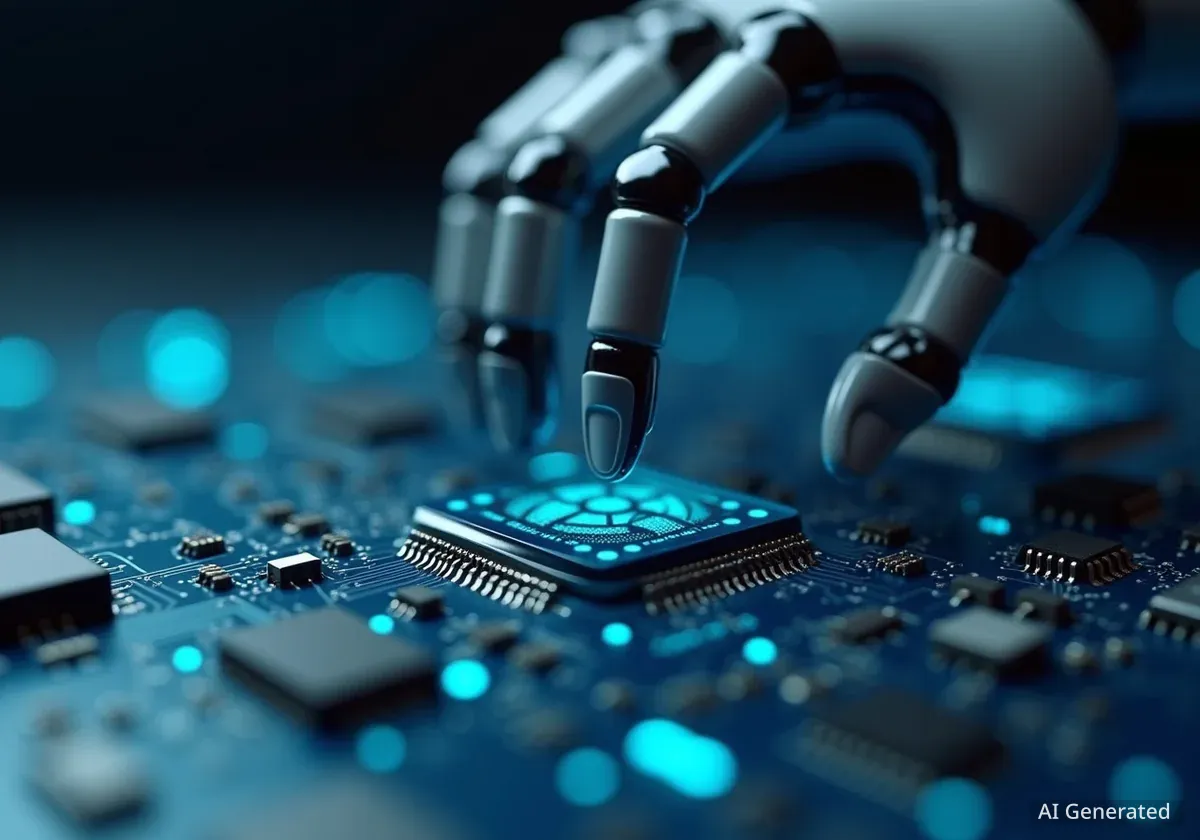Elon Musk's artificial intelligence company, xAI, is actively developing advanced 'world models.' This initiative places xAI alongside major tech rivals such as Meta and Google. These models are designed to enable AI systems to understand and interact with physical environments. The company aims to apply this technology in areas like video games and robotics, potentially creating highly interactive 3D environments.
Key Takeaways
- xAI is developing 'world models' to allow AI to understand physical environments.
- These models could power advanced AI in video games and robotics.
- xAI has hired specialists from Nvidia, a leader in simulation technology.
- Elon Musk stated xAI plans to release an AI-generated game by late next year.
- World models represent a significant advance beyond current large language models.
xAI's Focus on Next-Generation AI
xAI, based in San Francisco, is focusing its efforts on building these next-generation AI models. Unlike large language models (LLMs) which are trained primarily on text data, world models learn from videos and data gathered by robots. This approach helps them build a comprehensive understanding of the real world, including physical interactions and causal relationships.
This development could push AI capabilities beyond what popular tools like ChatGPT and xAI's own Grok can achieve. Current LLMs excel at processing and generating text. World models, however, are designed to grasp the physics of an environment and how objects behave within it.
Fact: World Models vs. Language Models
Large Language Models (LLMs) like ChatGPT learn from vast amounts of text to understand and generate human language.
World Models learn from visual and robotic data to comprehend physical environments and real-time interactions, offering a more causal understanding of the world.
Talent Acquisition and Strategic Goals
To support this ambitious goal, xAI has brought in specialists from Nvidia. Among these hires are AI researchers Zeeshan Patel and Ethan He. Both individuals possess significant experience in world models. Nvidia itself is a leader in this field, known for its Omniverse platform, which creates and runs complex simulations.
People familiar with xAI's strategy indicate that the company plans to use these world models in gaming. The technology could generate interactive 3D environments, offering new possibilities for game design. There is also potential for these models to be integrated into AI systems for robotics, enhancing their ability to navigate and operate in physical spaces.
"xAI would release a 'great AI-generated game before the end of next year,'" Elon Musk stated in a post on X. This confirms a target he previously set.
Broader Industry Trends and Challenges
The development of world models is not unique to xAI. Other leading AI laboratories, including Google and Meta, are also working on similar systems. These tech groups have high expectations for world models, believing they could expand AI applications beyond software to physical products like humanoid robots.
Nvidia, for instance, suggested last month that the potential market for world models could rival the current global economy's size. This highlights the perceived economic impact of such advanced AI systems. However, creating world models presents significant technical challenges. Gathering enough data to accurately simulate the real world and train these complex models remains both difficult and expensive.
Context: The 'Omni Team'
xAI is recruiting for its "omni team," seeking technical staff in image and video generation. This team focuses on creating AI experiences that go beyond text, covering various modalities such as image, video, and audio. Salaries for these positions range from $180,000 to $440,000.
AI's Role in Gaming and Future Prospects
The gaming industry is one of the target areas for world models. On Tuesday, xAI introduced its latest image and video generation model. The company announced this model features "massive upgrades" and is available for free use. Current video generation models, such as OpenAI's Sora, create video frames by predicting patterns based on training data. World models would offer a more advanced approach by providing a causal understanding of physics and object interactions in real time.
xAI is also hiring for a "video games tutor." This role involves training Grok, xAI's AI chatbot, to produce video games and help users explore AI-assisted game design. The pay for this position is between $45 and $100 per hour.
Despite the excitement, some industry figures express caution. Michael Douse, head of publishing at Larian Studios, known for developing Baldur's Gate 3, shared his perspective on X. He believes AI cannot solve the "big problem" facing the games industry, which he identifies as a lack of "leadership and vision."
Douse stated, "The industry did not need more mathematically produced, psychologically trained gameplay loops, but rather more expressions of worlds that folks are engaged with, or want to engage with."
This viewpoint suggests that while AI can enhance technical capabilities, the core of engaging game design still relies on human creativity and vision. The journey to fully realize the potential of world models in gaming and robotics is ongoing, with both significant opportunities and complex hurdles.





